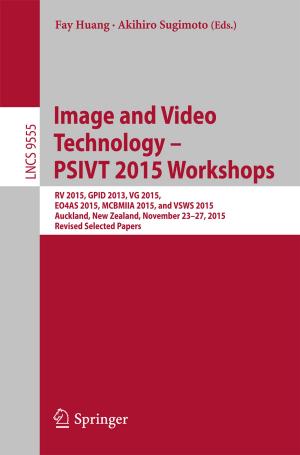The Velestino Hoard
Casting Light on the Byzantine 'Dark Ages'
Nonfiction, Social & Cultural Studies, Social Science, Archaeology, History, European General| Author: | Florin Curta, Bartłomiej Szymon Szmoniewski | ISBN: | 9783030048464 |
| Publisher: | Springer International Publishing | Publication: | February 28, 2019 |
| Imprint: | Palgrave Macmillan | Language: | English |
| Author: | Florin Curta, Bartłomiej Szymon Szmoniewski |
| ISBN: | 9783030048464 |
| Publisher: | Springer International Publishing |
| Publication: | February 28, 2019 |
| Imprint: | Palgrave Macmillan |
| Language: | English |
This book examines the remarkable Velestino hoard, found in Thessaly in the 1920s, and analyses the light that this collection of artifacts sheds on a poorly studied period of Byzantine history, and on largely neglected aspects of Byzantine civilization. Many collections of Byzantine gold- and silverware, such as Vrap and Seuso, have been surrounded by controversy. None, however, has been under more suspicion than the Velestino hoard, particularly with regards to its authenticity. The hoard contains no gold and no silver, and is in fact a collection of bronze and leaden plaques, some with human, and others with animal or geometric representations. The authors examine three distinct aspects of the hoard: the iconography of its components, the method of its production, and the function of those components. The conclusions that they reached provide valuable new insights into eighth-century Byzantine culture. The book explores the Byzantine cultural and political context of the Velestino hoard and will appeal to historians and art historians of early Byzantium, as well as archaeologists and historians of early medieval technologies.
This book examines the remarkable Velestino hoard, found in Thessaly in the 1920s, and analyses the light that this collection of artifacts sheds on a poorly studied period of Byzantine history, and on largely neglected aspects of Byzantine civilization. Many collections of Byzantine gold- and silverware, such as Vrap and Seuso, have been surrounded by controversy. None, however, has been under more suspicion than the Velestino hoard, particularly with regards to its authenticity. The hoard contains no gold and no silver, and is in fact a collection of bronze and leaden plaques, some with human, and others with animal or geometric representations. The authors examine three distinct aspects of the hoard: the iconography of its components, the method of its production, and the function of those components. The conclusions that they reached provide valuable new insights into eighth-century Byzantine culture. The book explores the Byzantine cultural and political context of the Velestino hoard and will appeal to historians and art historians of early Byzantium, as well as archaeologists and historians of early medieval technologies.















